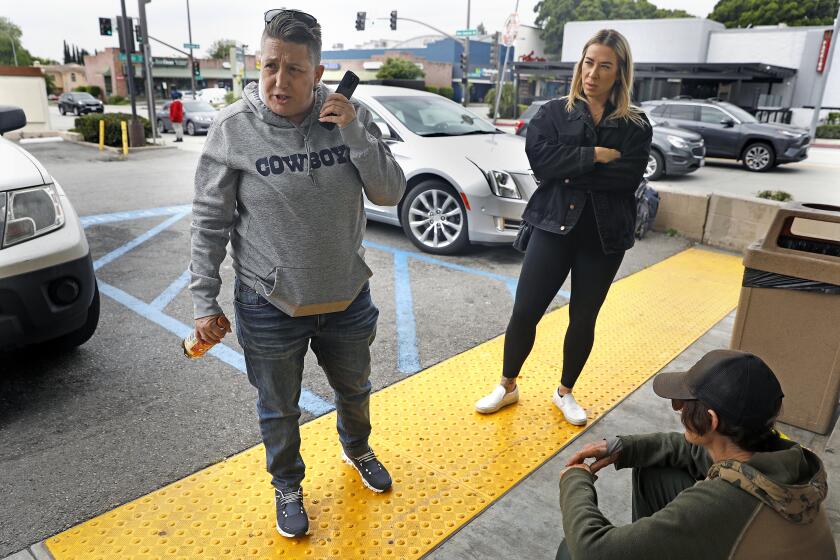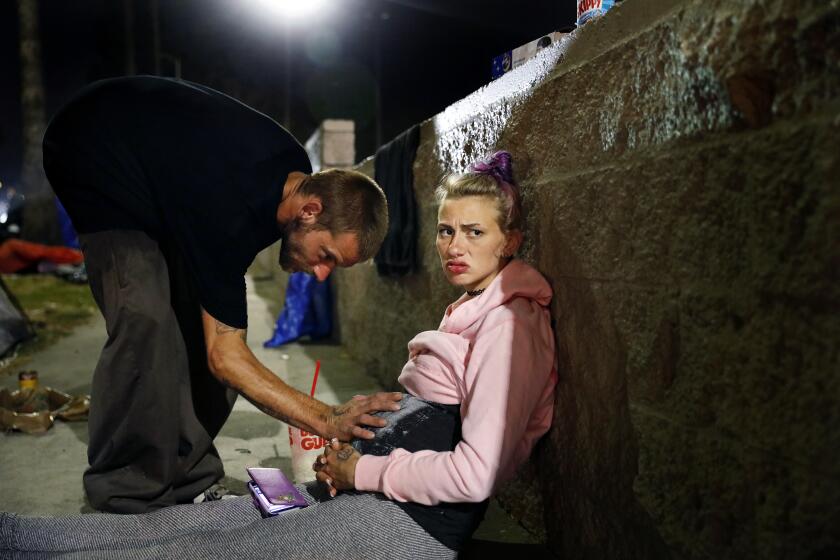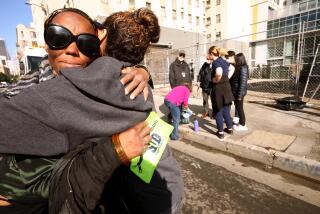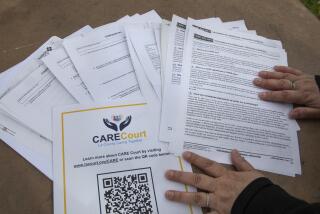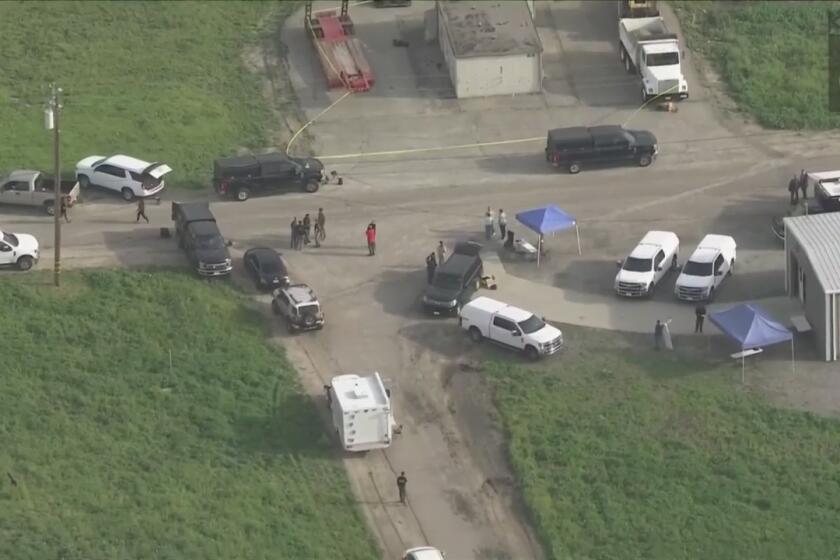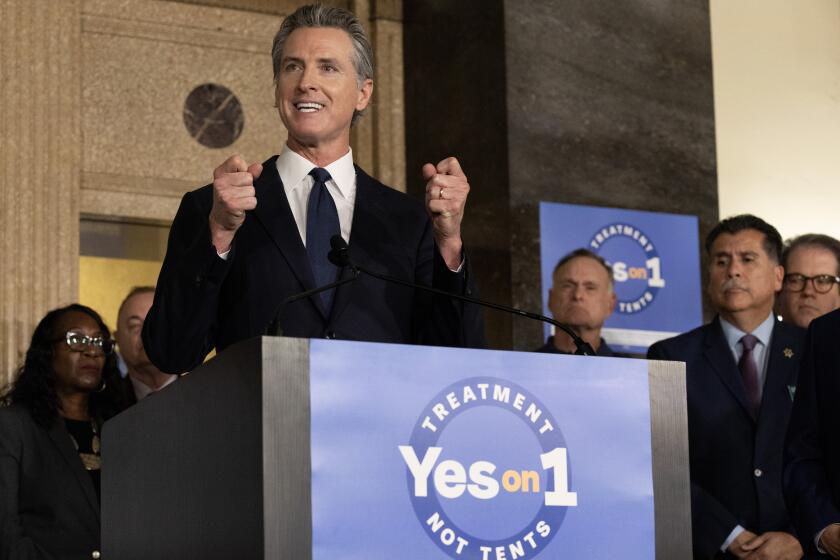Released after two years of locked psychiatric care: A battle few families can fight
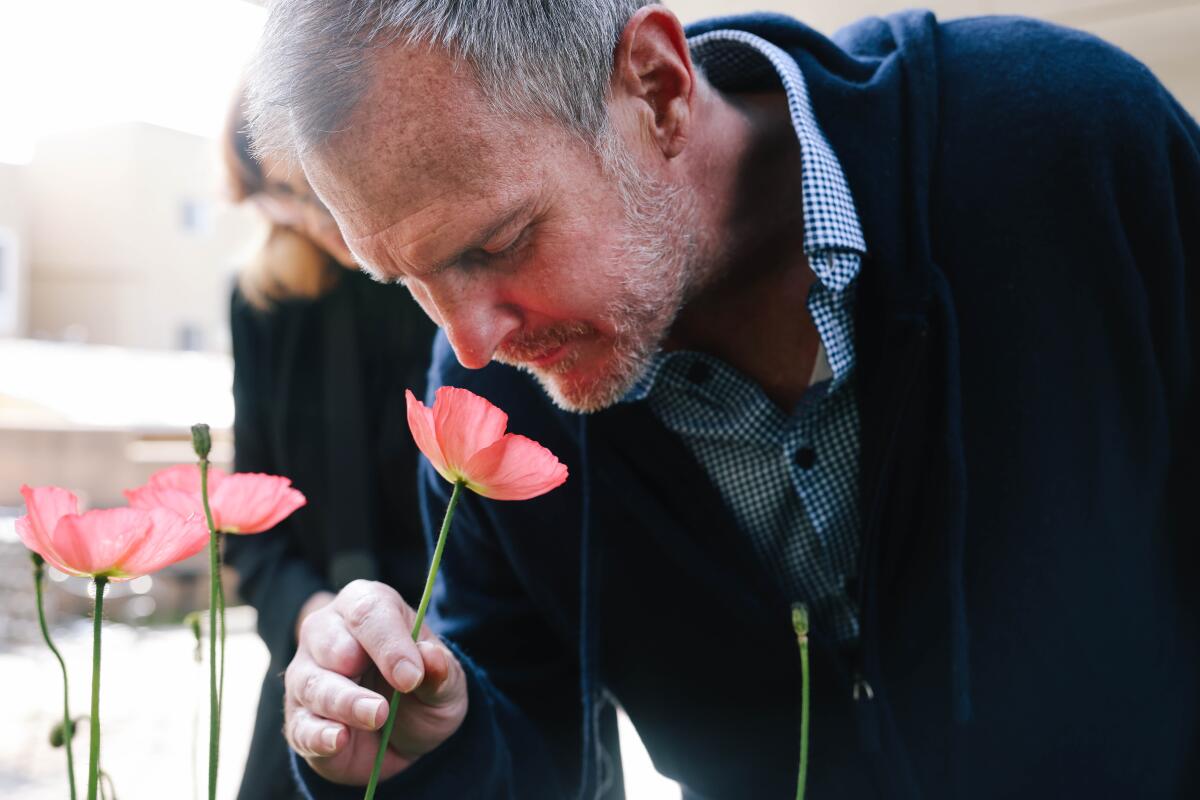
Once again, he was in the psychiatric ward of L.A. County jail, the last stage in a repeated cycle that had led from a promising new start to creeping irrationality or a sudden break from reality, then homelessness, then arrest for trespass or disorderly conduct or public indecency.
It was 2021. After 15 years of futility, unable to reach through the cloud that enveloped him and let down by a mental health system that could do no better, his brothers and sisters shared their experiences with The Times, knowing so many others were going through the same recurring nightmare.
The story, published that November, left John Maurer facing a hopeful but uncertain future. Stories like his don’t really end.
But now, after two years of dogged work by his sister Sarah Dusseault and a team of mental health advocates, Maurer’s has taken the best possible turn. On Valentine’s Day, he checked out of the locked psychiatric facility in San Bernardino County that had been his home for two years. After a 90-minute drive, he stepped out of a van on Stanley Street in Hollywood to start a new phase of his life.
Tall and slightly stooped with buzz-cut hair and wearing an open black sweatshirt over an NBA T-shirt, Maurer broke into a smile when he saw Dusseault waiting with a Valentine’s gift in the driveway of Bel Air Guest Home, a 32-bed board and care facility.
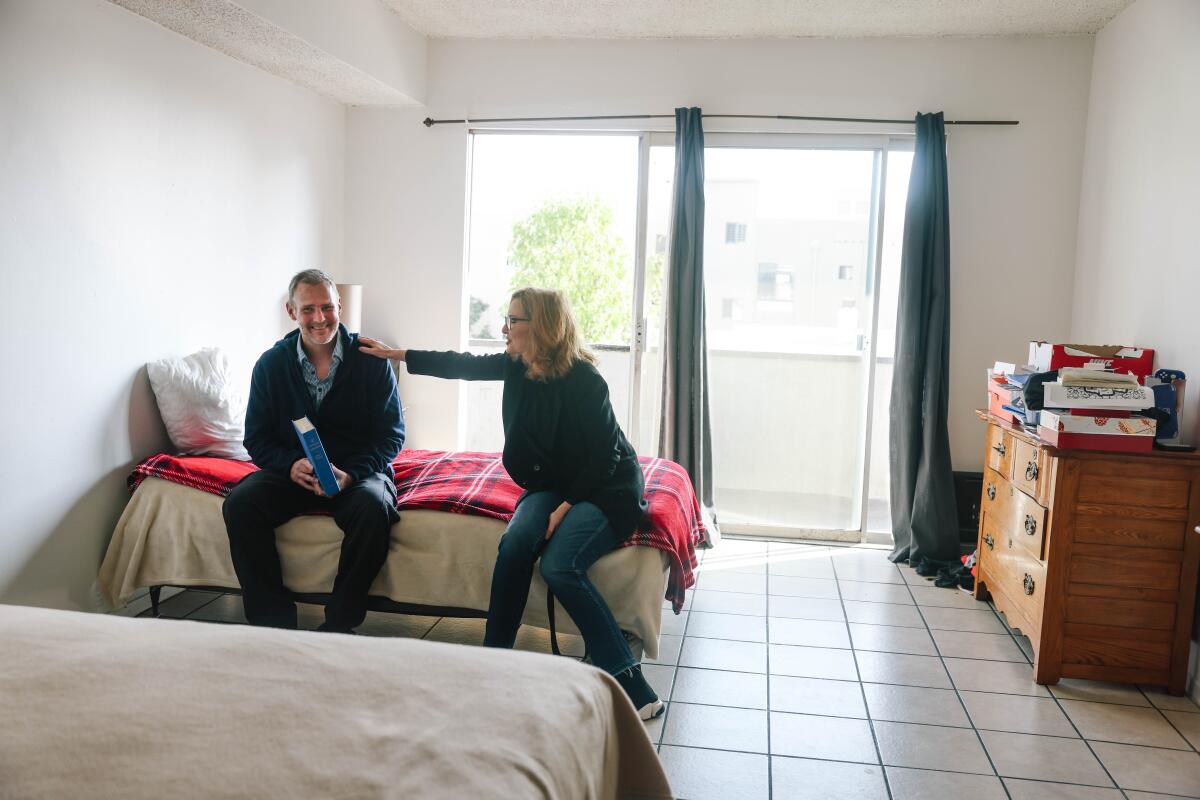
After a long hug with her brother, she helped the two interns who had accompanied Maurer carry six plastic bags of belongings to the second-floor room he will share with a roommate.
“Do you want to see your bathroom?” she asked. “See you have your own.”
Then he was summoned to the front office for intake. The office clerk went over the house rules, paged through a sheaf of papers for him to sign and peppered him with questions, some superficial and others deep.
“Do you know your Social Security number?”
“Yeah.”
“You’re hearing voices?”
“I hear a lot of voices.”
“Do you have any hallucinations?”
“No. I see shadows sometimes. Sometimes I feel like the radio stations are talking about me.”
“How about emotional?”
“Um, well,” after a long pause, “I lost my freedom before I came here. That turned me to be emotionally depleted.”
“Do you have difficulty functioning?”
“No, I function fairly well. What made me gravely disabled was that I couldn’t afford a roof over my head. I didn’t even have a tent. Now that I have a roof over my head, I think I’m OK.”
In an aside, Maurer volunteered a self-assessment.
“This last arrest, it changed my life,” he said. “I like to say I wasn’t arrested. I was rescued.”
Part private investigator, part street clinician, a self-described crisis interventionist takes to the street to help one mother reconnect with a daughter who is homeless and mentally ill.
The first day had gone well. Dusseault planned to enroll him next in the Hollywood Clubhouse, a gathering spot for people with mental illness run by her friend Kerry Morrison, the founder of Heart Forward, a nonprofit that advocates for mental health system reforms.
“This is an end of a period,” Dusseault said reflectively. “It’s also the beginning of reconnections both to families and community.”
Underlining the joy of the day was exhaustion from the long and trying journey that led up to it, a saga of desperate relatives navigating a mental health system bedeviled by roadblocks and inconsistencies and, at key moments, brightened by dedicated public servants.
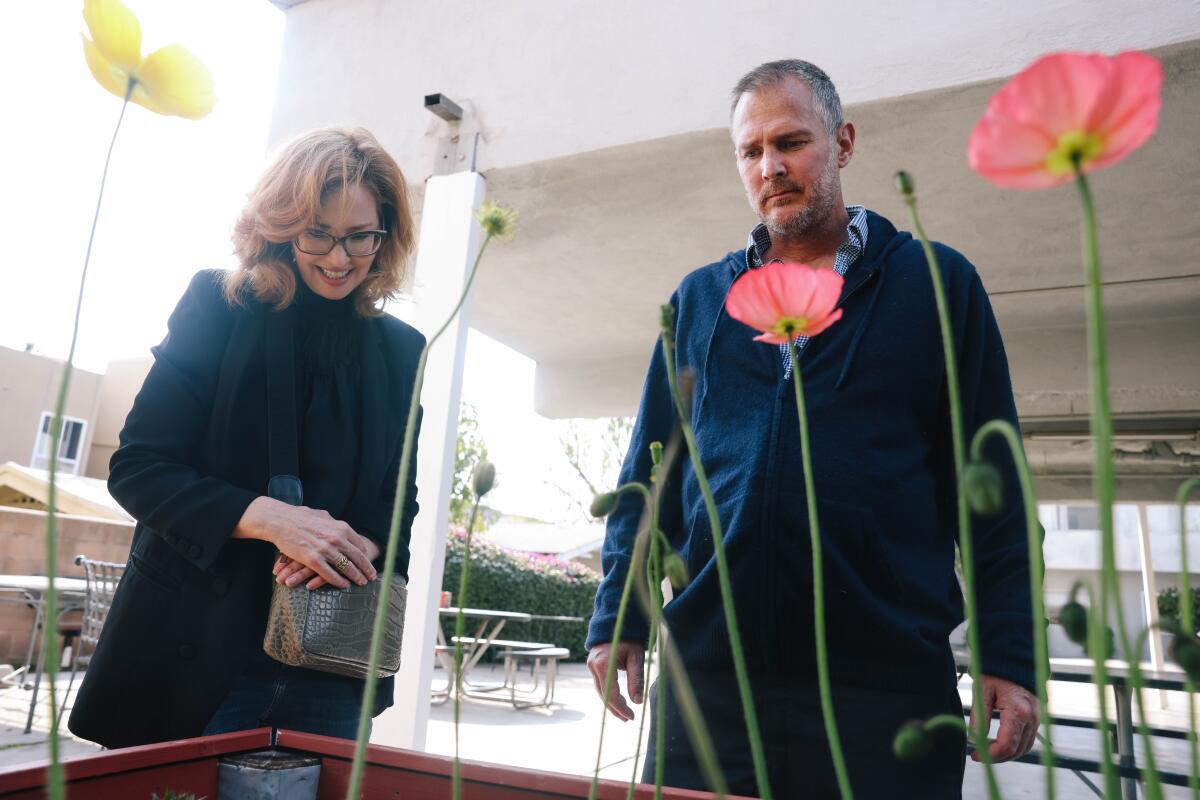
“At different occasions, you just stumble upon these angels who are phenomenal at their job,” Dusseault said. “They have a mountain of people to try and help, but they just do their best.”
After he had languished that six months in jail on bench warrants related to two indecent exposure cases, a judge finally acceded to his family’s long expressed wish to have him placed under conservatorship, a legal status in which someone — customarily a public guardian — would assume control over his life: where he lived, how he spent his money and what medications he took. In this case, Dusseault took on the vast responsibility.
The next two years of her life show that even people like Dusseault — who has strong connections in Los Angeles politics and a deep understanding of the mental health system — face a relentless struggle to get their loved ones the proper care.
Whether her story could be a model for others, without such a background, Dusseault is not sure.
Her first step was the search for a facility that would accept Maurer, a jail inmate with more than 15 prior arrests and a registered sex offender at that point in a deeply psychotic state.
For weeks, Dusseault corresponded with a care transitions liaison at the Twin Towers Correctional Facility, starting with an email authorizing her to “seek placement in a locked long term care facility.” But the search went nowhere.
The transitions liaison emailed back that she had made referrals to seven locked facilities, but “at this time we don’t have any acceptances.”
Three weeks later she emailed again asking whether Maurer had been ordered to register as a sex offender.
That wasn’t necessarily a deal breaker, but in the competition for scarce locked beds, it could be the deciding factor.
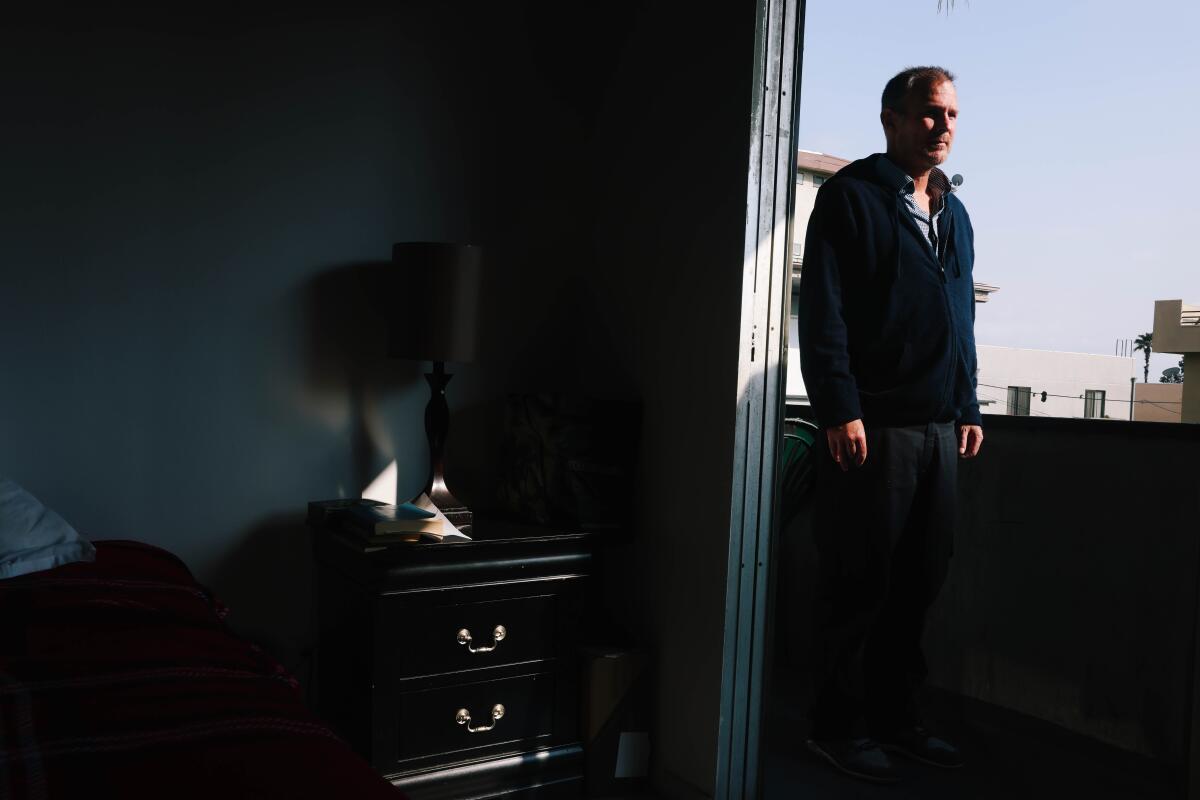
Dusseault turned to her personal connections, of which she had many, having served as aide to a Los Angeles council member, a mayor and a county supervisor.
Help came from her friend Morrison, who suggested a locked facility that she knew accepted sex offenders. The only problem was it was in the city of Highland, 60 miles away.
“At that point I’m conservator. I have to agree,” Dusseault said. “I just wanted him out of jail. Anything that said, ‘Yes,’ I was going to take.”
Sierra Vista Behavioral Health Center was everything she hoped for, with a pleasant facility and a caring staff. Still, it was rough. The drive for visits was about 90 minutes each way. With the COVID-19 pandemic forcing lockdowns in nursing facilities, she sometimes wasn’t allowed to see him at all.
They talked every couple of days. On each visit she gave him a handful of change for the pay phone.
After a year, she could see a difference, and so could the staff at Sierra Vista.
“They were saying he is ready to be transferred,” she said.
At the time, there was nowhere to transfer him to. The first choice, a step-down facility with enhanced services for those leaving locked care, was quickly ruled out. Maurer’s criminal record made him ineligible for all but a handful of step-down beds. He would have to be on a waiting list.
Dusseault and a caseworker started phoning board and care homes, the next level down on the care hierarchy. Operated in either single-family homes or apartment buildings, they provide meals, 24-hour supervision and medication management. But they struggle under an outdated funding model that has forced many to close in recent years. Free beds are scarce.
Dusseault and his caseworker went down a list, looking for a bed.
“It felt like cold calling,” Dusseault said. “ ‘Hey, do you have a bed?’ Given his criminal background and background of homelessness, he wasn’t the most competitive applicant for these places. We weren’t getting any response.”
In an encampment above the Hollywood Freeway, nothing about Mckenzie Trahan’s future is certain.
Once again, Dusseault’s friend Morrison came up with a solution. Morrison had a long-standing relationship with Galina Samuel, owner of the Bel Air board and care, where she gives a weekly Bible study class.
Samuel offered a bed and walked Dusseault through the application for county mental health support that would allow his caseworker from Wesley Health Centers to stay with him.
The final hurdle required dogged work — a combined effort of the caseworker and family members to rebuild Maurer’s official identity — Social Security card, birth certificate, driver’s license and income verification — all lost in the transfer from jail.
After two weeks at Bel Air, Maurer received a visit from The Times to be photographed. He was in an upbeat mood and readily described his routine of daily walks, AA meetings and activities such as playing “Family Feud” with other residents.
Asked how he liked being there, he cut off the question with his own.
“Free?” he asked. “It feels nice. I don’t want to mess up again. I’m not going to mess up again.”
He looked dispassionately into his own story of addiction, panhandling, paranoia and homelessness.
Two years earlier, his consent to tell his story was mumbled in words only Dusseault could interpret. This time it was succinct and clear: so that others “could see that homeless people were real people.”
Unlike his sister, Maurer has no doubt what others could learn from it: “unconditional love.”
“Sarah went all out, heads over heels for me,” he said
It would be impossible to untangle the many influences in Maurer’s story. Did Dusseault’s political connections give her an advantage in seeking to become her brother’s conservator? Would she have found placements for her brother without the help from her network of mental health advocates? Did the story in The Times make a difference?
Dusseault doesn’t have the answers but draws from them one insight.
“I work a lot in this space,” she said. “I advocate in this space. I’ve made a ton of friendships. It is still difficult for me to help my brother. It takes a lot of research, a lot of trial and error.
“I am completely compassionate to family members who just give up. We have to make it work better.”
More to Read
Start your day right
Sign up for Essential California for news, features and recommendations from the L.A. Times and beyond in your inbox six days a week.
You may occasionally receive promotional content from the Los Angeles Times.
